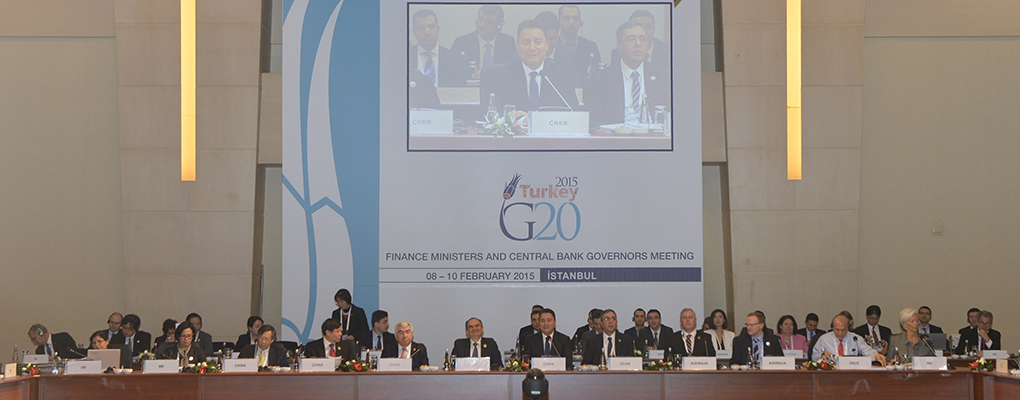
Marking the first day of the G20 Finance and Deputy Bank Meeting in Istanbul, the OECD has released its 2015 edition of Going for Growth: a report that assesses the progress made by each member country and identifies the changes needed in order to boost the economy. The report, which was presented by OECD Secretary-General Angel Gurría and Turkish Deputy Prime Minister Ali Babacan, refers to the sluggish growth that still persists in a majority of the G20 countries, more than six years after the financial crisis began.
The report describes how many advanced economies are in the midst of a
vicious cycle
The OECD underlines the ongoing concerns for advanced economies, as illustrated by recent growth revisions, such as slowing productivity, infrastructure restraints, long-term unemployment and resource misallocation. Chronic shortfalls in demand and the slow pace of structural reforms can be attributed to this continued period of stagnation. “It’s important that structural policies, in addition to improving growth prospects in the medium-term, can help support demand in the short-term. The ones we focus more on are investments and global trade, because these are two elements that can directly help with demand,” Alain De Serres, Chief Economist at the OECD, told World Finance. In order to restore healthy growth, the report recommends that resolute policy changes must be made and followed up with the appropriate legislation, thus ensuring implementation at all levels.
The report describes how many advanced economies are in the midst of a vicious cycle, whereby growth is undermined by weak demand, which in turn reduces demand further as consumers and investors become increasingly risk averse. The OECD recommends the promotion of investment as being vital for countries to break out of this rut, with a focus on infrastructure spending being particularly important. “This is where governments can push, because they can increase public investment and help with infrastructure investment; they can try to improve the regulatory environment to facilitate the combination of private and public investment into infrastructure,” said De Serres.
The obstacles to foreign trade and investment, such as high tariffs, as well as legal and administrative obstacles, have hindered the potential for growth. This is an area in which can be drastically transformed in order to promote economic activity among G20 states. “There is still more to be done in terms of facilitating the entry of new firms, those that have new ideas, and allowing them to tap into resources so that they can grow more rapidly,” explained De Serres. Other suggestions made by the OECD include increased investment of R&D and promoting the pursuit of innovation, as well as the global integration of knowledge-based capital. Furthermore, key drivers of productivity gains can be achieved through greater wage dispersion, in addition to broader access to all levels of education and skills development. The report also highlights how job creation can be boosted through alleviating labour taxes and reforming labour market policies.


